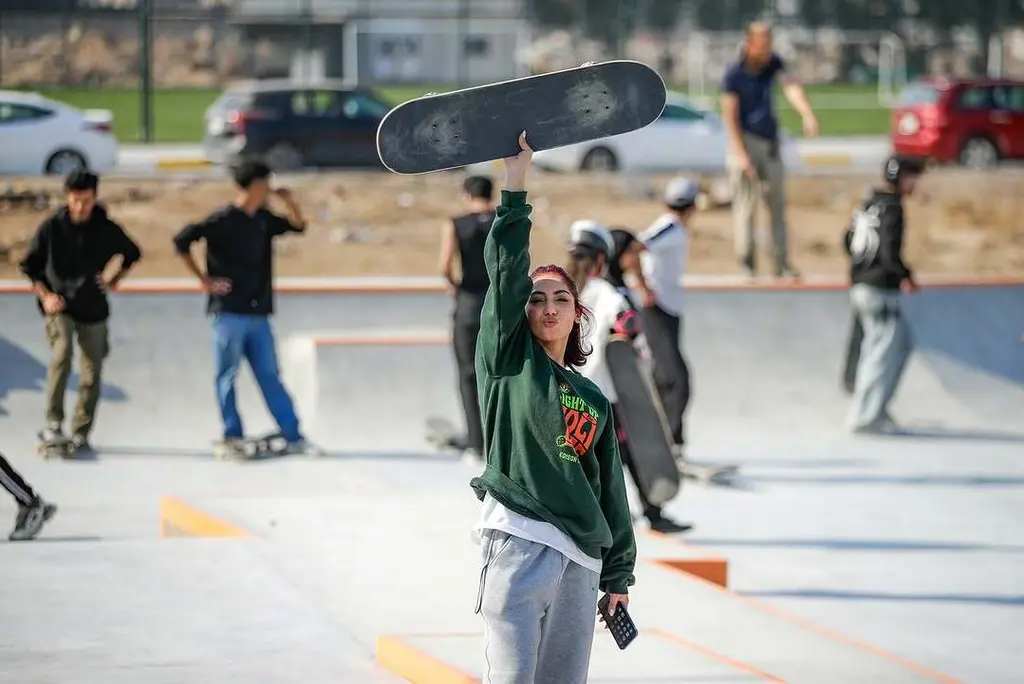How do you make fitness accessible for all?
- Text by Huck
- Photography by Robbie May

As the founder of Be The Fittest, an operation seeking to empower people through health, fitness and wellbeing, Tyrone Brennand understands the power of creating an inclusive exercise culture as well as anyone.
It all stems from his own experience. As a younger man, Tyrone fell in with the wrong crowd. He began getting into fights and fell into trouble with the police. But fitness allowed him a path out of that: with help from the Prince’s Trust, he was able to launch the business he still runs today, providing him with a different path in life.
In the first instalment of Collectivity, a series created with Reebok that sees us connect organisations with like-minded supporters, we’ve brought Tyrone together with Liverpool’s 2Step Collective, so that he can share his expertise with the crew as they embark on a journey of their own.
Below, Tyrone outlines his advice for the group on how to create a culture that works for everyone – regardless of who they are, or what their circumstances might be.
 Adapt to your surroundings
Adapt to your surroundings
“When I first started training, I’d sneak into gyms at night because I couldn’t afford to go. I didn’t really have the knowledge in regards to access. But now you have social media, you have the internet. The advice I would give to people is if you can’t afford to go to the gym, being able to create a workout program at home, or go for a run outside, is definitely something that you can do. It’s about having that knowledge and understanding and knowing what to do, then doing it. After all, it’ll still give you that same feeling. I think lockdown proved that people can work out from home.”
Stay inspired
“For me and a lot of my friends, when we were in school it was pretty academic. But the passion we had always used to be when it was, like, PE, or when we’d go and play football. When you come from a place where there may not be so much opportunity, and you want to release some sort of steam or let the body loose, it’s very important to be able to understand how to do that healthily. When you’re young and you have a lot of energy, being able to get into something healthy – any type of sport – is important. Nowadays, people have a lot more access to be able to be inspired, to find the right path and say, ‘This person has been able to make it in sport. Why can’t I do that?’”

 Recognise your limits
Recognise your limits
“It’s all about the balance. We’re not trying to be professional athletes, we’re not trying to be people setting world records. For the majority of us, we do it because we want to be fitter, healthier, happier. That comes with keeping things balanced, being able to exercise in moderation is very important. There’s a thin line between exercising a lot and becoming obsessive – which can become detrimental to your mental health and your life. I am a big advocate for telling people, ‘If there isn’t time for a training session in the day, then it’s okay.’ Don’t beat yourself up about it, don’t be mad.”
Start small – and build from there
“2Step is such a fantastic initiative. For people who may not have the confidence or the accessibility to do something, the money to sign up to a running club… it’s a great thing that they’re doing. The one piece of advice I would give to the crew, though, is for them to always remember the reason why they started. When movements become big, when they really kick off, it’s easy to have so many ideas. But keep it simple. Remember the reasons why you did it. It will keep on growing from there.”
 Collectivity is an editorial series produced in collaboration with Reebok. View more stories from the partnership.
Collectivity is an editorial series produced in collaboration with Reebok. View more stories from the partnership.
Enjoyed this article? Like Huck on Facebook or follow us on Twitter.
You might like

Maryam El Gardoum is breaking new shores for Morocco’s indigenous surfers
The Amazigh Atlantic — Through her groundbreaking career and popular surf school, the five-time Moroccan champion is helping women find their places in the waves.
Written by: Sam Haddad

Volcom teams up with Bob Mollema for the latest in its Featured Artist Series
True to This — The boardsports lifestyle brand will host an art show in Biarritz to celebrate the Dutch illustrators’ second capsule collection.
Written by: Huck

Bohemian FC is more than a football club
Carefree, wherever you may be — With rock star friends, a fierce commitment to Palestinian solidarity and their very own climate justice officer, north Dublin’s fan-owned team make their presence felt far beyond the pitch.
Written by: Tiernan Cannon

Gazan amputees secure Para-Cycling World Championships qualification
Gaza Sunbirds — Alaa al-Dali and Mohamed Asfour earned Palestine’s first-ever top-20 finish at the Para-Cycling World Cup in Belgium over the weekend.
Written by: Isaac Muk

In Baghdad, skater girls are reshaping Iraqi womanhood
Baghdad is rad — As the city’s first skatepark opens, the new space is providing a blank canvas for its board culture. Dalia Dawood speaks to the people looking to make its ramps and rails a safe haven for women and girls.
Written by: Dalia Dawood

Frazer Clarke: “I had a hole in my leg, I’m very lucky to be alive”
Hard Feelings — For our interview column on masculinity and fatherhood, the Olympic boxing medallist speaks to Robert Kazandjian about hard graft, the fear and triumph of his first fight, and returning to the ring after being stabbed on a night out.
Written by: Robert Kazandjian